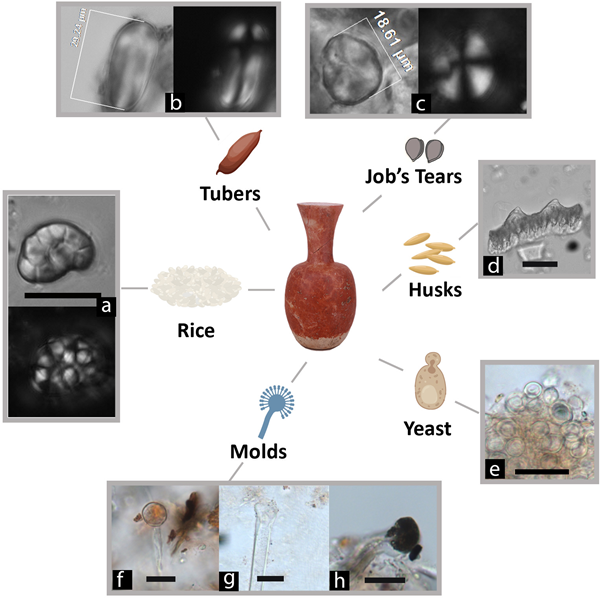Archaeologists recently found beer-brewing ingredients in the pottery vessels excavated from a Neolithic settlement, dating back 9,000 years, in Yiwu, East China's Zhejiang Province.
The discovery was published in a paper titled "Early evidence for beer drinking in a 9000-year-old platform mound in southern China" on US scientific journal PLOS ONE. The authors of the paper are Jiang Leping and Sun Hanlong, two researchers with the provincial cultural relics and archaeology institute, as well as Wang Jiajing, a Stanford University scholar.
The discovery means that Yiwu, which is today known as the "world's supermarket", probably boasts the longest beer-drinking history in the world.
The Neolithic settlement was discovered in Qiaotou village in western Yiwu in 2012 and has been proven to belong to a Neolithic culture known as the Shangshan, which originated in the lower reaches of the Yangtze River.
Excavation of the Qiaotou site has been ongoing since 2014. The many elaborate pottery vessels found on a platform mound in the center of the site are believed to be the earliest known painted pottery works in the world. Many of these vessels have narrow necks and globular bodies, resembling a bronze vessel known for holding alcohol during the Shang and Zhou dynasties.
By applying microfossil residue analysis to the pottery remains, archaeologists found that some of the vessels were used to store beer made of rice and Job's tears. Archaeologists suspect the mound was a ceremonial place for funerary rituals that involve beer drinking.

Beer-related microfossil remains are found in the pottery vessels excavated from a Neolithic settlement in Yiwu, Zhejiang province. [Photo/Jinhua Daily]
According to the paper, prehistoric alcoholic beverages include beer, wine, and mead. Wine and mead are made from fruits, honey, or other substances composed of simple sugars that can be fermented into alcohol with yeasts. Beer, on the other hand, is made from cereal grains or other starchy substances, such as rice, millet, barley, maize, and tubers.
The findings suggest that beer drinking was an essential element in prehistoric funerary rituals in southern China and this contributed to the emergence of complex farming societies four millennia later.
It is also worth mentioning that Yiwu's millennium-old Red Yeast Wine, a provincial-level intangible cultural heritage item, is also made of rice, suggesting a subtle link with the prehistoric beer.